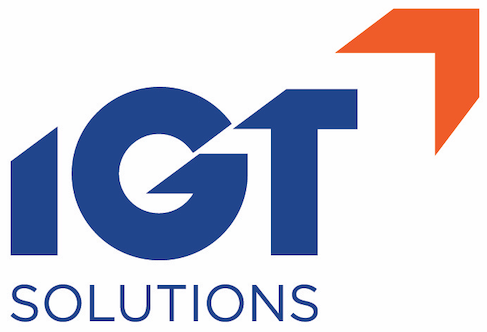Contented customer service agents mean delighted customers
Sponsored by IGT Solutions
The pandemic has changed much about how we work today, from what we think of as important, to where we work, and how we get the job done. Businesses have needed great flexibility when responding to these changes.
An important part of this has involved re-evaluating customer experience (CX) strategies. And the most successful companies are recognizing that, to get CX right, you also need to focus on customer service agents, because they are a pivotal component of CX.
There is a very close relationship between the agent’s experience and the customer’s experience. Agent experience (AX) is the sum of all interactions an agent has with their organisation, and it can significantly impact business performance. Companies that treat their agents well and provide them with a supportive environment will have more satisfied customers and deliver better business outcomes.
This is because agents who have a good experience during their working day, and who feel good about their employer, will interact far better with the customers they serve. This in turn drives improved customer outcomes. Conversions and basket sizes are increased, while loyalty and advocacy are strengthened.
Optimising the customer service agent’s experience
Customers can often solve simple problems through self-service options. But to resolve more difficult issues, they will normally turn to a CX agent. And when this happens, the mindset of those agents is critical.
So what can businesses do to ensure that their agents are working in an optimal environment? Enablers that help agents succeed at work include: their physical environment; a healthy work culture with the opportunity for informal social connections; and sufficient autonomy, with agents given choice and control over when and how to work. In addition, the right digital environment with supportive tools and technology is essential.
Support through technology
Digital capabilities can greatly improve agent engagement, motivation and learning. Techniques that should be considered include:
- Agent assist solutions such as unified agent desktops that give agents access to all relevant data about a customer. Agents with access to real-time information can make better informed decisions, meaning that the customer feels valued by an organisation that understands their concerns.
- Data analytics that enable agents, and their managers, to understand what actions have worked well in the past, as well as providing insights into what customers may respond to in the future.
- Automation of standard transactional procedures. This frees agents to focus on the complex and more interesting issues that add greater value to the customer and the business.
- Skills-based routing. Routing calls based on agent skills, language, location and other customised options increases efficiency, reduces agent frustration and delivers higher levels of customer satisfaction.
- Gamification. By adding a game-playing element to agent systems, such as competitions or simple visual rewards, agents are helped to complete objectives and learn new skills. The public recognition of achievements with digital badges and awards increases motivation.
- Task management. Agents should not be expected to interface with customers for the whole of their working day. Task management software can find times in the agents’ work schedules for training, meetings with managers and other off-phone work, based on the volume of customer traffic.
While implementing these and other techniques, businesses need to think carefully about the agent’s user experience (UX) while using any digital tools. User interface (UI) design is crucial for AX as it facilitates agent access to data and reporting tools that is simple and to the point.
Supporting agents in a work-from-home setting
As organisations review their CX strategies following the pandemic, the work from home (WFH) model will play a key role.
Increasingly, people are accustomed to the new work environment and collaboration processes that result from working remotely. While there are many benefits to the WFH model, both for businesses in terms of cost and efficiency, and for workers in terms of comfort and flexibility, there are also many factors that need to be considered if the change is to be beneficial for all parties.
- Training and development. Lifelong learning is increasingly accepted as necessary in a fast-changing world. Organisations should combine face-to-face training in groups (when the pandemic allows) with online training for individuals working from home; this should be based around short modules, self-paced and interactive.
- Agent engagement. Organisations should ensure that agents, especially those working from home for long periods, feel connected to their organisations and colleagues. Creating a sense of common purpose and belonging will increase feelings of loyalty, responsibility and pride in doing a job well.
- Agent wellness. For agents working from home, burnout is a real issue. There may be imagined pressures to work longer hours. Feelings of loneliness can impact mental health. And disconnection from managers and colleagues can result in feelings of insecurity. Successful organisations recognise these issues and address them.
Managing agent performance
While there are many steps organisations can take to bolster the effectiveness of their customer service agents by improving their work environment, it is also necessary for managers to monitor the effectiveness of these measures, not least so that initiatives that are causing agents frustration can be identified and addressed.
Monitoring must be done sensitively, with agents aware of what monitoring takes place and with monitoring limited so that agent privacy is not infringed. For instance (depending on local privacy regulations), it may be acceptable to record whether someone is using social media at work. But it is unlikely to be permissible to record the details of the conversations that take place on social media.
Onboarding too will be different, as will ongoing management. Performance management and training practices must be in place to minimise any disparity between brick-and-mortar and WFH agents’ experience, as otherwise inefficiencies, and indeed accusations of discrimination, may occur.
The effectiveness of customer service agents is crucial to most organisations. Companies that actively build an optimised agent experience and an organisational culture that supports this will find that their engaged and motivated customer agents are a highly effective component of driving long-term growth and profitability.

IGT provides integrated BPM, technology, and digital services that simplify complex customer interactions. To learn more about the importance of agent experience, read Everest Research’s viewpoint in Delivering Superior Experiences

Business Reporter Team
Most Viewed
Winston House, 3rd Floor, Units 306-309, 2-4 Dollis Park, London, N3 1HF
23-29 Hendon Lane, London, N3 1RT
020 8349 4363
© 2024, Lyonsdown Limited. Business Reporter® is a registered trademark of Lyonsdown Ltd. VAT registration number: 830519543





